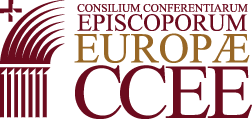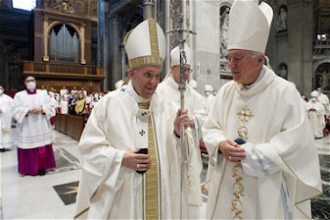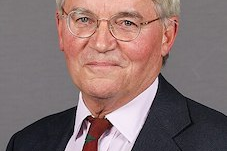European Bishops legal advisors focus on end of life, migration issues

Source: CCEE
Regulations about the so-called 'end of life' and migration were the focus of the work of the legal advisers of the Bishops' conferences, who met in Luxembourg from 10 to 12 December 2017, at the invitation of the local Archbishop HE Mgr Jean-Claude Hollerich. The works were chaired by HE Cardinal Angelo Bagnasco, president of the CCEE. The meeting was also attended by the Apostolic Nuncio in Luxembourg, HE Mgr Augustine Kasujja.
Miss Sophia Kuby of ADF International introduced the debate on the current end-of-life issues.
The legal advisers pointed out that there is great confusion around some notions and practices aimed at regulating the so-called 'end of life'. The Church reiterates that it is unlawful to take somebody's life! No one can claim the right to decide about one's death or that of others. One cannot judge whether a life is worth living because of an unclear and widespread idea of a 'right to die in dignity'. Moreover, no one can define what is meant by a 'good quality' of life, too often measured according to efficiency and full decision-making and relational autonomy, rather than according to a life lived within a network of virtuous relationships. This vision linked to the end of earthly life is typical of our Western culture, which is strongly marked by individualism mistaken for freedom, without recognizing that it inevitably leads to a tragic and desperate loneliness.
The legal advisers have reaffirmed the need to participate in the public debate, clearly advocating their position, rather than affirming principles and convictions. It is therefore important to give reasons and motivations using a language that is understandable to everyone.
In the twists and turns of the legal jargon, the need to focus on the limits of the law and the freedom of the individual is clear. They must be consistent with the truth and promote the dignity of the human person in their ontology.
Life that comes to an end in this world needs medical care and legal protection that aim at the true good of the person. The alternative proposal of the Church, in all situations of loneliness and suffering, is accompanying the person from the beginning, that is from conception, to the natural end of life. The Church is concerned about those laws that, instead of promoting love and solidarity towards the most vulnerable and the most suffering, encourage a culture of death.
The other topic discussed regarded European and national regulations on migration. The theme was introduced by a video of Professor Chiara Favilli from the University of Florence.
The recent migration emergency and the considerable increase in the number of asylum seekers have highlighted the need for a review of European and national regulations. The fact that the EU does not have a common policy for migration or asylum, leaves discretionary power to the States, which results in choices and implementation measures that are too different from one another.
We have acknowledged, with a few concerns, how this 'legal uncertainty' within the EU and individual member states is leading to political and social instability.
European countries must make every effort to promote peace and development, as well as justice, in the countries from which so many people are fleeing. However, economic cooperation does not seem to be enough. It is necessary not only to make sure that migration and asylum-related issues become part of social policies, but also of labour and family policies. In fact, asylum is still intended as being part of the "welfare policy" of the States, i.e. social support, rather than being related to integration or movement across the Member States.
For the Church, welcoming the stranger is a commandment of God. This leads her to make every possible effort, while respecting legality, to generously welcome and adequately integrate those who reach our countries. The analysis of the situation in the various countries showed the great involvement of the Church in the management of migration, not only during the emergency, but also in urging the passing of laws and regulations, which take into account the complexity of the problems while respecting the fundamental rights of every person and community.
Finally, the participants have addressed a few issues regarding the Istanbul Convention. Stressing and appreciating the initiative of the States in recognizing the severity of the phenomenon of domestic violence, some weaknesses were highlighted, however, with respect to the use of an ideological language.
The participants had the chance to visit the Court of Justice of the European Union, exchanging views with the President of the Court, Mr Jaeger, and Mr F Biltgen, Judge at the Court. The visit ended with a dinner offered by Dr Ignacio Ulloa Rubio, a Spanish Judge of the Court of Justice, also attended by other Judges of the Court. The visit was organized with the contribution of Mr Mauro Gatti, from the University of Strasbourg.
The Council of European Bishops' Conferences (CCEE) currently gathers 33 European Bishops' Conferences, represented by their Presidents, plus the Archbishops of Luxembourg, of the Principality of Monaco, the Maronite Archbishop of Cyprus and the Bishop of Chişinău (Moldova Rep), the Eparchial Bishop of Mukachevo and the Apostolic Administrator of Estonia.The current President is Cardinal Angelo Bagnasco, Archbishop of Genoa; the Vice-Presidents are Cardinal Vincent Nichols, Archbishop of of Westminster, and Mgr Stanisław Gądecki, Archbishop of Poznań. The CCEE General Secretary is Mgr Duarte da Cunha. The Secretariat is based at St Gallen (Switzerland) For more information see: www.ccee.eu





















